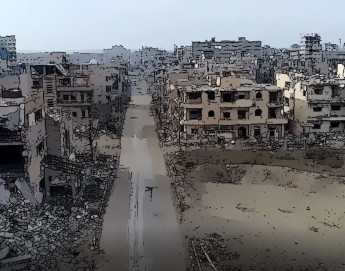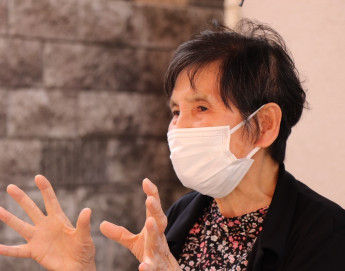NPT States Parties must make urgent progress on implementing their obligations and commitments
Excellencies,
Ladies and Gentlemen,
This Preparatory Committee marks the start of a new review cycle for the Non-Proliferation Treaty (NPT), one where concrete progress towards nuclear disarmament is needed more than ever.
The world is facing growing tensions and a renewed nuclear arms race, while the risks of deliberate or accidental use of nuclear weapons have risen alarmingly. Strident nuclear rhetoric and threats of use, the increasingly prominent role of nuclear weapons in military doctrines and security policies, and the continued modernization of nuclear arsenals all challenge the decades-long nuclear taboo. These concerning developments bring us closer to a nuclear catastrophe from which all of humanity would suffer irreparably.
But despite a growing body of evidence on the catastrophic consequences of nuclear weapons, today we observe two alarming trends:
First, deterrence theories are regaining vigor and appeal, despite the tremendous risks associated and their unproved benefits. They profess to defend national and collective security but ignore human security.
Second, the use of nuclear weapons, in particular so-called "low-yield" or tactical nuclear weapons, is being normalized in military planning, political discourse and the media. The Hiroshima bomb had a yield of 15 kilotons, which today would fall within the category of tactical nuclear weapons. It killed 140,000 people.
Any use of nuclear weapons would have catastrophic humanitarian consequences, capable of endangering the very survival of our planet.
The ICRC and the Japanese Red Cross Society witnessed first-hand the horrific impact of the atomic bombs that targeted Hiroshima and Nagasaki in 1945. With the vast majority of hospitals destroyed and doctors and nurses killed or injured, assisting those who initially survived the blast was nearly impossible. The International Movement of the Red Cross and Red Crescent has since been calling incessantly for the prohibition and elimination of nuclear weapons.
In the ICRC's view, it is extremely doubtful that nuclear weapons could ever be used in accordance with international humanitarian law. Any use of, or threat to use, nuclear weapons would be abhorrent to the principles of humanity and the dictates of public conscience.
Preventing the deliberate or accidental use of nuclear weapons is a humanitarian imperative. Measures to reduce nuclear risks are therefore urgently needed. They include substantive reductions in nuclear arsenals nd the freezing of modernization efforts; unequivocal commitments never to use nuclear weapons first; their removal from high operational alert; and steps to reduce their role in security policies.
But risk reduction is not a substitute for nuclear disarmament. The only way to guarantee that nuclear weapons are never used again is by prohibiting and eliminating them.
The elimination of nuclear weapons is a legally binding obligation under the NPT, enshrined in its Article VI. A comprehensive prohibition of nuclear weapons is an essential step in this direction. In this respect, the Treaty on the Prohibition of Nuclear Weapons (TPNW) complements the NPT and supports its objectives. It provides a roadmap for future measures to achieve nuclear disarmament and strengthens the existing nuclear non-proliferation framework.
Since their creation, the use and testing of nuclear weapons has gravely affected and continues to affect entire communities and large areas in many parts of the world.
Redressing the tremendous harm caused by nuclear weapons use and testing requires international cooperation and assistance. Assisting victims of nuclear tests and remediating the contaminated environment can help promote the NPT's object and purpose.
Yet, the 10th Review Conference missed a critical opportunity to counter the unacceptable risks nuclear weapons pose and to make meaningful advances towards the implementation of Article VI. NPT States Parties must make urgent progress on implementing their obligations and commitments, including those contained in the treaty itself and in the 2010 Review Conference Action Plan.
The ICRC makes the following recommendations to the Committee for the current review cycle:
- Keep the catastrophic humanitarian consequences of nuclear weapons at the center of its debates and decisions.
- Agree on concrete steps to implement nuclear risk reduction measures, including commitments undertaken at the 2010 Review Conference.
- Recognize the humanitarian imperative of assisting victims of nuclear weapons use and testing and remediating the contaminated environment.
- Build on the language contained in the final draft outcome document of the 10th Review Conference calling on NPT States parties to engage in victim assistance and environmental efforts.
- Commit to ensuring that affected communities have adequate information about the extent and impact of contamination due to nuclear weapon use and testing and that affected persons and communities are appropriately involved in designing and implementing victim assistance and environmental remediation programmes and activities.
- Commit to strengthening dialogue and cooperation with relevant international and regional organizations, the ICRC and the rest of the Red Cross and Red Crescent Movement, and civil society, to effectively mitigate the harm caused by nuclear weapon use and testing.
Thank you.


